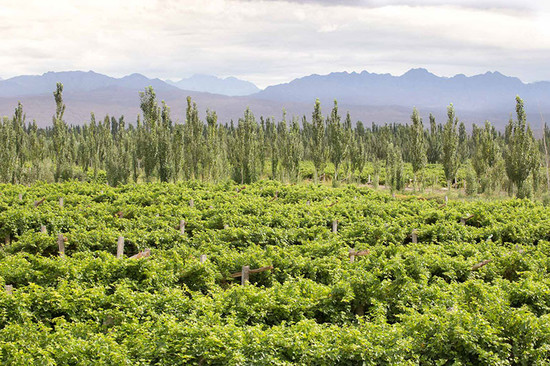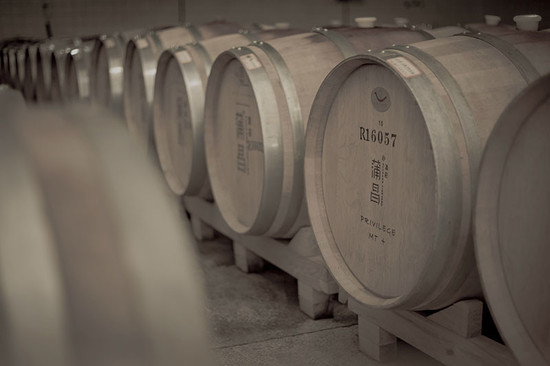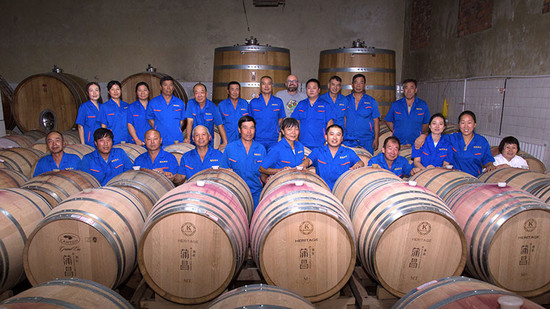Having only just celebrated its 10th birthday, this progressive, Xinjiang-based newcomer in China’s far northwest has been making both big waves and great strides.

2018 will go down as a milestone year for Puchang, celebrating a collection of Silver medals with its Beichun (a cryptic red grape which is a cross between local and wild varieties) and its Rkatsiteli at this year’s Decanter World Wine Awards; a healthy introduction to life on the global stage, coming only two years after the international launch of its wines.
The Beichun was praised for its crisp tannins which framed a soft palate of herbs, candy floss and dark berries, while the Rkatsiteli (which includes a hint of Riesling) was lauded for its tropical and stone fruits, as well as its vanilla-oak edging. This award-winning pair is complemented by a diverse range of wines within the Puchang stable which includes Pinot Noir, Saperavi, Cabernet Sauvignon and a Chinese clone of Muscat called Rodinshuang.
1975 marks the time when the first vines were planted, yet it wasn’t until over three decades later, in 2008, when things began to progress at a significantly faster pace. Enter Hong Kong businessman K. K. Cheung who purchased the estate, giving it a scratch winemaking team and generally a fresh lick of paint.

Very much an oasis in the middle of the desert, Puchang – located in China’s Xinjiang province Turpan Valley - now comprises 67ha of vineyards which produce up to 150,000 bottles each year. Thanks to the unforgiving climate, this land is almost entirely free of pests, so it’s unsurprising that all plots are certified by ECOCERT as being organically maintained, with the final stamp of approval coming in 2013 after five years of assessment.
These vineyards are irrigated by snowmelt from Tian Shan Mountain which finds its route to the vines via the natural, underground Karez water network before being diverted into threads of stone-lined irrigation channels which dissect Puchang.
Sitting between 300m and 1300m above sea level, Puchang Vineyard benefits from the unique, mineral-rich soil of Taklamakan Desert. Diurnal temperature variations are extreme in this region, where winters can sink to -20°C, while summers have been known to rocket to 54°C.
Working with such distinctive terroir and grapes, the Puchang team works the vineyards with unwavering dedication and care. All fruit is handpicked and hand-sorted, and with the arrival of the brutal winter months, the vines begin their enforced hibernation, with each being individually buried in December to protect them from the worst nature can throw at them, before they are retrieved from the ground the following spring.

The management of the vineyard rests firmly under the stewardship of Chief Winemaker, the Italian Loris Tartaglia who is supported by his passionate international team. Tartaglia has a wealth of international experience across the globe from USA to New Zealand as well as time in South America, South Africa and Europe.
He says working in Xinjiang is challenging yet exciting, and his profound knowledge of modern-day winemaking is perfectly supplemented by the longstanding acumen of local farmers who, literally, know the lay of the land, its behaviour and its idiosyncrasies.
At Puchang, the whole is certainly greater than the sum of its parts, and its haul of medals from around the world is surely a foregone conclusion.
For further information on Puchang and its constant evolution, visit the website www.puchangwine.com or its Facebook page www.facebook.com/puchangwine
Translated by ICY
All rights reserved by Future plc. No part of this publication may be reproduced, distributed or transmitted in any form or by any means without the prior written permission of Decanter.
Only Official Media Partners (see About us) of DecanterChina.com may republish part of the content from the site without prior permission under strict Terms & Conditions. Contact china@decanter.com to learn about how to become an Official Media Partner of DecanterChina.com.

Comments
Submit